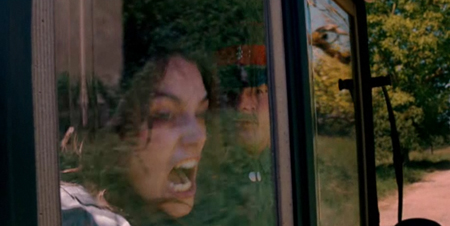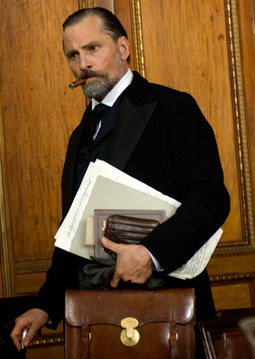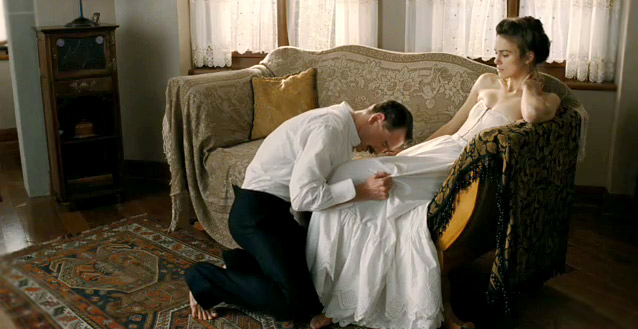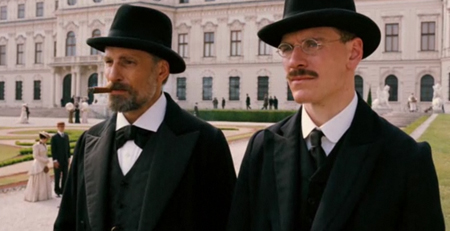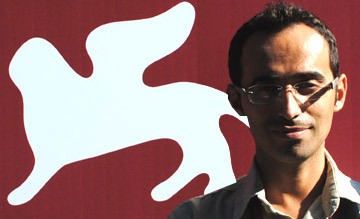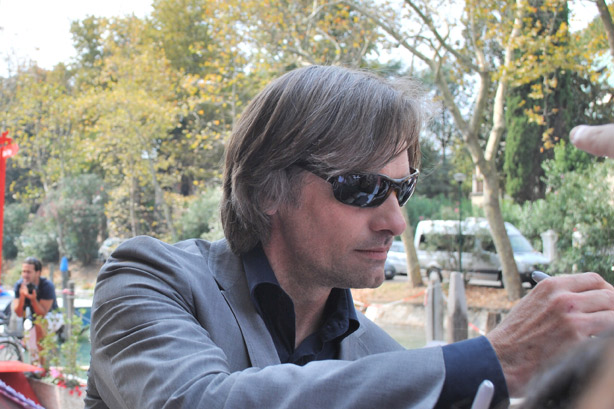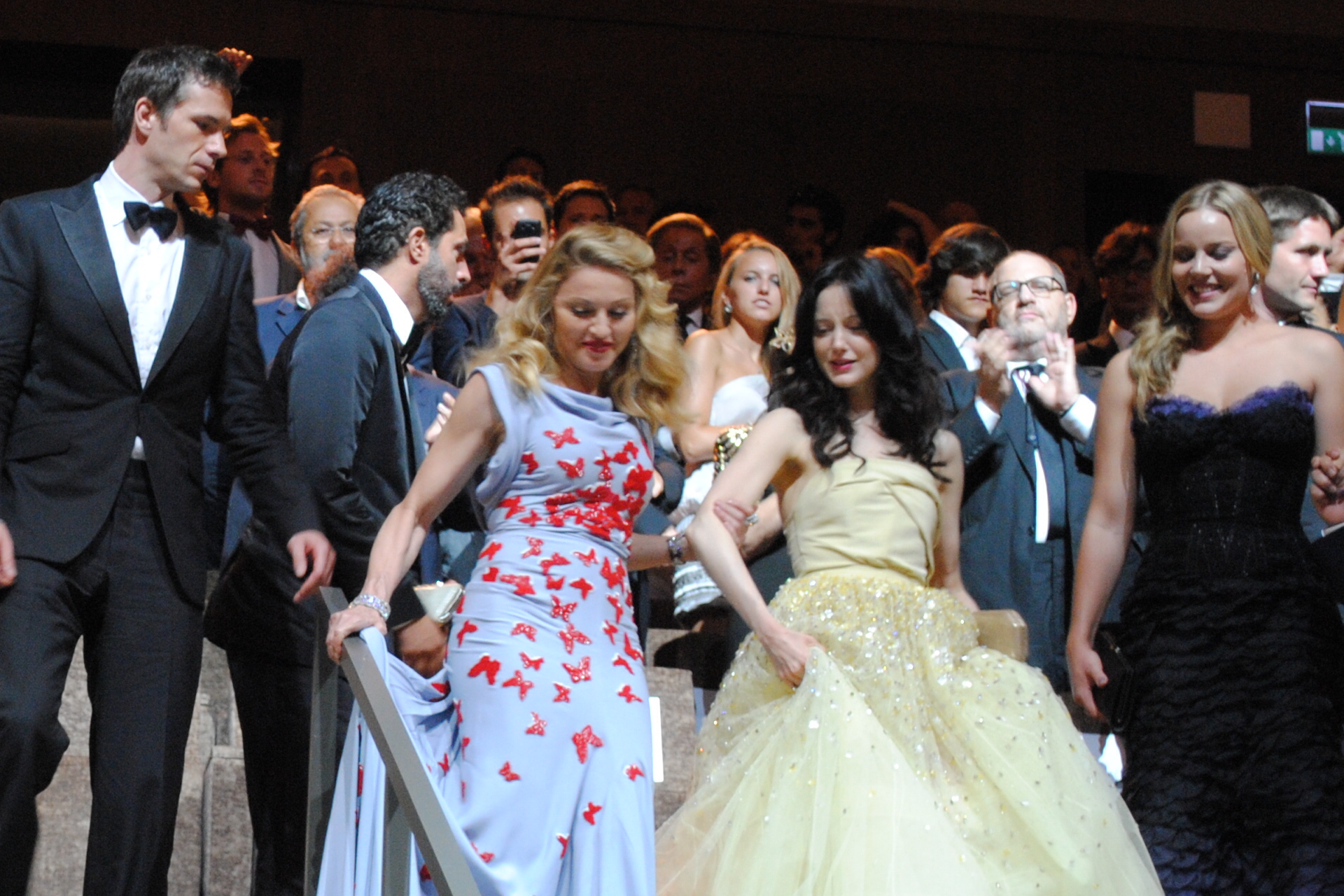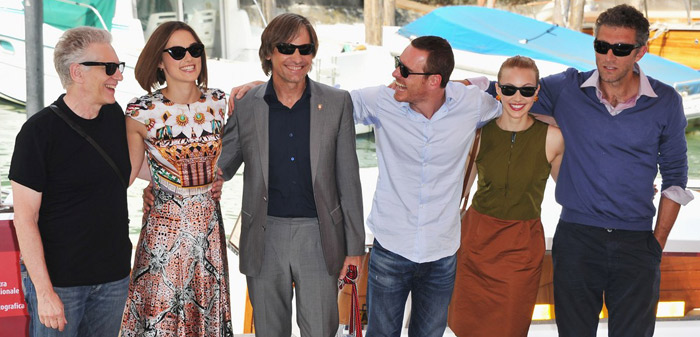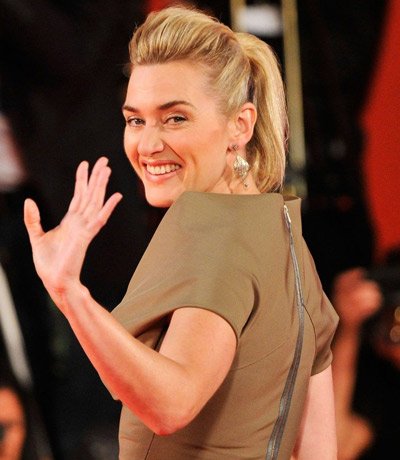Best of London: Weekend, Snowtown, Martha, and More...
 Saturday, October 29, 2011 at 5:00PM
Saturday, October 29, 2011 at 5:00PM [Editor's Note: Thank you to Craig and David for their reporting from this year's London Film Festival which concluded two days ago. Here they are with a final chat about their treasures and pleasures. -Nathaniel]
Craig: So, David, I guess it's time to mull it over and decide on our "Best of the Fest". Top tens, top fives? More, less? I wonder what we'll agree and disagree on...
David: It's always sad to say goodbye. It might not be the most glamorous or revelatory event on the festival circuit, but it has such a nice atmosphere strewn across Central London, flirting with megastars every so often, but giving equal red carpet steps to the little gems you speak of. A top five definitely isn't enough for me, but I'll give restraining myself my best shot. I've been there most days, and often packed in four in a day (my eyes are paying the price!), so I'd wager I have seen more than you - quality over quantity, though!
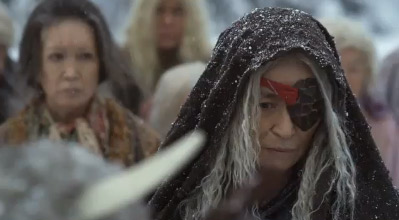 Dendera
Dendera
In my stringently ordered, agonisingly compiled list that I just came up with, my number five slot would go to Oslo, August 31st, which I offered up some thoughts on just the other day - so I'll give conversation space to a glorious runner-up instead. Dendera – one of the most enjoyable experiences of the fest – is a gloriously demented twist on a Japanese myth invented in Imamura's The Ballad of Naramaya; in this new film, his son Daisuke Tengan explores the afterlife of the elderly who've been put out to pasture. One old woman decided she didn't want to die, thank you, and set up a community on the other side of the hill from the village that cast her out. In short: it's the sort of bloody batshit horror movie you'd have seen in 1980s Britain, not least because of hilariously dreadful bear puppetry that's very similar to Attack the Block.
 Craig: I’ve heard variable things on Dendera, but your description makes it sound like great fun. Sad I missed it now. And due to timing I had to choose another film over Oslo, sadly. Quite unintentionally I saw a lot of rather grim confrontational dramas although the lighter titles were a delight, so I should first give credit to three not at all violent films which won me over immensely. Weekend was a beautifully played affair that grabbed me from the first frame. Loved its naturalistic dialogue, likeable performances and wistfully hopeful (would you agree?) overall tone. How sweet to finally have a gay take on the Before Sunset/Sunrise 'will they or won't they?' film! Pariah, another excellent gay-themed romance, was moving and featured a great central turn from Adepero Oduye. The photography stood out as some of the fest’s best, too. (I wrote about both earlier) Terri, a cheering and good-natured film about an overweight high school loner made, was made with easy style and without sentimental cliché. It snuck up on me in a big way; its emotional impact worked during the film and later, on my way to the tube, it made me smile in the way that obviously quirky indie films of its ilk rarely do. John C. Reilly gave one of his best performances and the humour was well-timed. What gems delighted you, David? I ask this now, before we get to the inevitably gloomier stuff...
Craig: I’ve heard variable things on Dendera, but your description makes it sound like great fun. Sad I missed it now. And due to timing I had to choose another film over Oslo, sadly. Quite unintentionally I saw a lot of rather grim confrontational dramas although the lighter titles were a delight, so I should first give credit to three not at all violent films which won me over immensely. Weekend was a beautifully played affair that grabbed me from the first frame. Loved its naturalistic dialogue, likeable performances and wistfully hopeful (would you agree?) overall tone. How sweet to finally have a gay take on the Before Sunset/Sunrise 'will they or won't they?' film! Pariah, another excellent gay-themed romance, was moving and featured a great central turn from Adepero Oduye. The photography stood out as some of the fest’s best, too. (I wrote about both earlier) Terri, a cheering and good-natured film about an overweight high school loner made, was made with easy style and without sentimental cliché. It snuck up on me in a big way; its emotional impact worked during the film and later, on my way to the tube, it made me smile in the way that obviously quirky indie films of its ilk rarely do. John C. Reilly gave one of his best performances and the humour was well-timed. What gems delighted you, David? I ask this now, before we get to the inevitably gloomier stuff...
David: Weekend is so good it deserves repeating. [MORE AFTER THE JUMP ON SEVERAL TITLES...]



